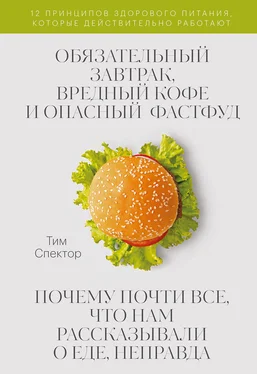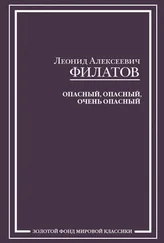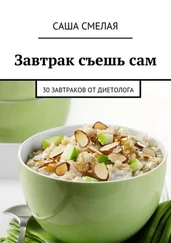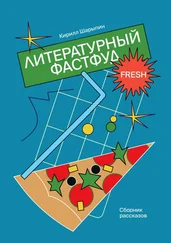Croall I. D. Gluten does not induce gastrointestinal symptoms in healthy volunteers: a double-blind randomized placebo trial // Gastroenterology. 2019. Vol. 157. Pp. 881–883.
Roager H. M. Whole grain-rich diet reduces body weight and systemic low-grade inflammation without inducing major changes of the gut microbiome: a randomised cross-over trial // Gut. 2019. Vol. 68. Pp. 83–93.
UK exercise guidelines: nhs.uk/live-well/exercise/(30 May 2018); US exercise guidelines: health.gov/paguidelines/(2019)
Tigbe W. W. Time spent in sedentary posture is associated with waist circumference and cardiovascular risk // International Journal of Obesity. 2017. Vol. 41. No. 5. Pp. 689–696.
Fujita H. Physical activity earlier in life is inversely associated with insulin resistance among adults in Japan // Journal of Epidemiology. 2019. Vol. 29. No. 2. Pp. 57–60.
Pontzer H. Hunter-gatherer energetics and human obesity // PLOS ONE. 2012. Vol. 7. No. 7. P. e40503.
Casanova N. Metabolic adaptations during negative energy balance and potential impact on appetite and food intake // Proceedings of the Nutrition Society. 2019. Vol. 78. No. 3. Pp. 279–289.
Thomas D. M. Why do individuals not lose more weight from an exercise intervention at a defined dose? An energy balance analysis // Obesity Reviews. 2013. Vol. 13. No. 10. Pp. 835–847.
Mostrous A. Coca-Cola spends £10m to counter links with obesity // The Times. 18 December 2015; Gornall J. Sugar: spinning a web of influence // BMJ. 2015. Vol. 350. P. h231.
Nestle M. Unsavory Truth: How Food Companies Skew the Science of What We Eat. Basic Books, 2018.
Noakes T. D. Lobbyists for the sports drink industry: example of the rise of “contrarianism” in modern scientific debate // Br. J. of Sports Med. 2007. Vol. 41. No. 2. Pp. 107–109.
Burke L. M. Swifter, higher, stronger: What’s on the menu? // Science. 2018. Vol. 362. No. 6416. Pp. 781–787.
Chekroud S. R. Association between physical exercise and mental health in 1.2 million individuals in the USA between 2011 and 2015 // Lancet Psychiatry. 2018. Vol. 5. Pp. 739–746.
Gustafson C. R. Exercise and the timing of snack choice: healthy snack choice is reduced in the post-exercise state // Nutrients. 2018. Vol. 10. No. 12. P. 1941.
Флуоксетин (прозак) — популярный антидепрессант, селективный ингибитор обратного захвата серотонина. Прим. науч. ред.
Jakubovski E. Systematic review and meta-analysis: dose-response relationship of selective-serotonin reuptake inhibitors in major depressive disorder // American Journal of Psychiatry. 2016. Vol. 173. No. 2. Pp. 174–183.
Lai J. S. A systematic review and meta-analysis of dietary patterns and depression in community-dwelling adults // American Journal of Clinical Nutrition. 2014. Vol. 99. No. 1. Pp. 181–197; Recchia D. Associations between long-term adherence to healthy diet and recurrent depressive symptoms in Whitehall II Study // European Journal of Nutrition. 2019. Vol. 1. Pp. 1–11.
Reynolds C. F. Early intervention to preempt major depression in older black and white adults // Psychiatric Services. 2014. Vol. 65. No. 6. Pp. 765–773.
Jacka F. N. A randomised controlled trial of dietary improvement for adults with major depression (the “SMILES” trial) // BMC Medicine. 2017. Vol. 15. No. 1. P. 23.
Firth J. The effects of dietary improvement on symptoms of depression and anxiety: a meta-analysis of randomized controlled trials // Psychosomatic Medicine. 2019. Vol. 81. No. 3. Pp. 265–280; Mizuno S. Bifidobacterium-rich fecal donor may be a positive predictor for successful fecal microbiota transplantation in patients with irritable bowel syndrome // Digestion. 2017. Vol. 96. No. 1. Pp. 29–38.
Sánchez-Villegas A. Mediterranean dietary pattern and depression: the PREDIMED randomized trial // BMC Medicine. 2013. Vol. 11. P. 208.
Valles Colomer M. The neuroactive potential of human gut microbiota in quality of life and depression // Nature Microbiology. 2019. Vol. 4. Pp. 623–632.
Yano J. M. Indigenous bacteria from the gut microbiota regulate host serotonin biosynthesis // Cell. 2015. Vol. 161. No. 2. Pp. 264–276.
Lukić I. Antidepressants affect gut microbiota and Ruminococcus flavefaciens is able to abolish their effects on depressive-like behavior // Translational Psychiatry. 2019. Vol. 9. No. 1. P. 133.
Walters M. J. Associations of lifestyle and vascular risk factors with Alzheimer’s brain biomarkers during middle age // BMJ OPEN. 2018. Vol. 8. No. 11. P. e023664.
Akbaraly T. Association of long-term diet quality with hippocampal volume: longitudinal cohort study // American Journal of Medicine. 2018. Vol. 131. No. 11. Pp. 1372–1381.
Setti S. E. Alterations in hippocampal activity and Alzheimer’s disease // Translational Issues in Psychological Science. 2018. Vol. 3. No. 4. Pp. 348–356.
Глутаминовая кислота (глутомат) — возбуждающий нейромедиатор. ГАМК — гамма-аминомасляная кислота — тормозной нейромедиатор нервной системы млекопитающих. Прим. науч. ред.
Zheng P. The gut microbiome from patients with schizophrenia modulates the glutamate-glutamine-GABA cycle and schizophrenia-relevant behaviors in mice // Science Advances. 2019. Vol. 5. No. 2. P. eaau8317.
Argou-Cardozo I. Clostridium bacteria and autism spectrum conditions: a systematic review and hypothetical contribution of environmental glyphosate Levels // Medical Sciences. 2018. Vol. 6. No. 2. P. 29.
Kang D. W. Differences in fecal microbial metabolites and microbiota of children with autism spectrum disorders // Anaerobe. 2018. Vol. 49. Pp. 121–131.
Mizuno S. Bifidobacterium-rich fecal donor may be a positive predictor for successful fecal microbiota transplantation in patients with irritable bowel syndrome // Digestion. 2017. Vol. 96. No. 1. Pp. 29–38.
Butler M. I. From isoniazid to psychobiotics: the gut microbiome as a new antidepressant target // British Journal of Hospital Medicine. 2019. Vol. 80. No. 3. Pp. 139–145.
Jacka F. N. Maternal and early postnatal nutrition and mental health of offspring by age 5 years: a prospective cohort study // J. Acad. Child & Adol. Psych. 2013. Vol. 52. No. 10. Pp. 1038–1047.
Jacka F. Brain Changer: How diet can save your mental health. Yellow Kite, 2019.
Saylor A. What’s wrong with the tap? Examining perceptions of tap water and bottled water at Purdue University // Environmental Management. 2011. Vol. 48. No. 3. Pp. 588–601.
Читать дальше
Конец ознакомительного отрывка
Купить книгу












